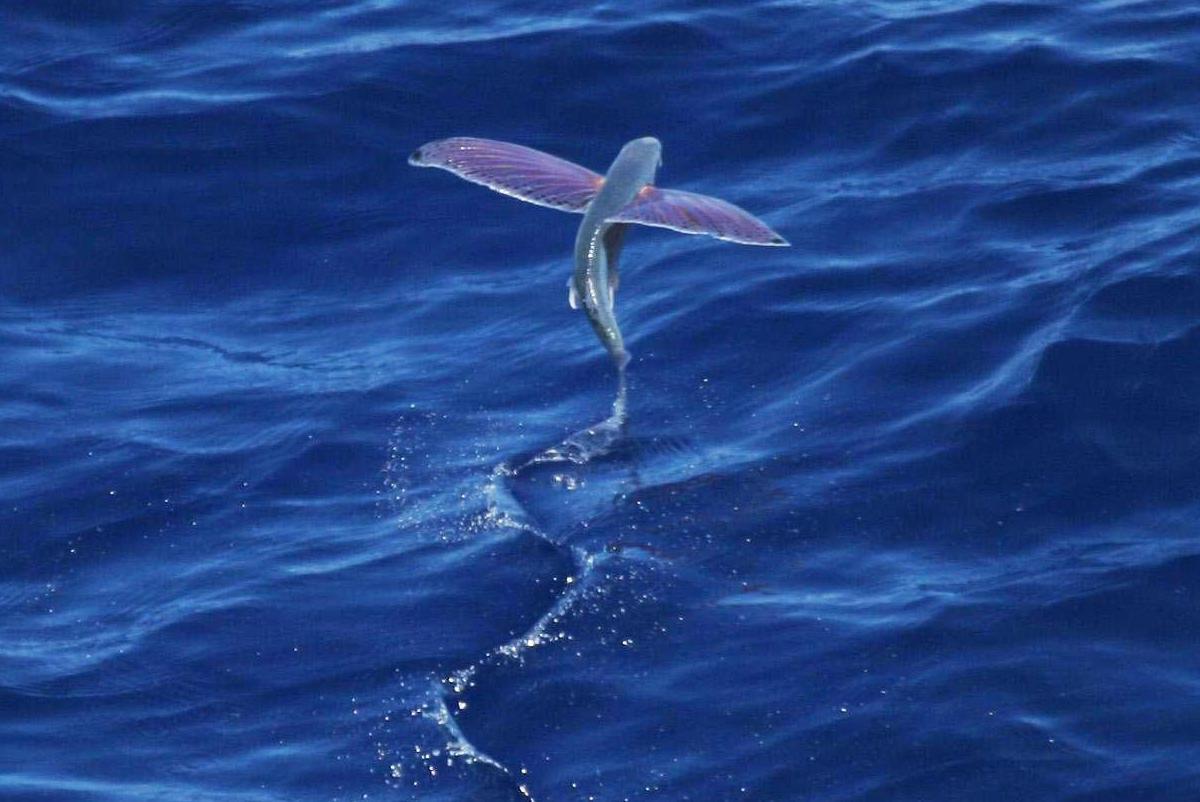D: It's time to go again to the A Moment of Science mailbag. A listener writes:
Dear A Moment of Science,
I have a simple question: do flying fish really fly? Or do they just kind of jump out of the water?
Y: Great question. And the answer is a yes! There are around sixty-four species of flying fish, and they really do fly.
D: Well, actually, they glide.
Y: Right. But they glide like birds do. Here's how it works. Say a flying fish is cruising through the water, when all of a sudden a swordfish shows up, looking for a meal. Choosing flight over fight, the flying fish whips its tail into a frenzy and shoots up out of the water. Then the airborne fish spreads its long, wing‑like pectoral fins and tilts them upward, similar to a bird. Wind passing under and over the wings creates lift, which sends the fish gliding through the air. The fish slaps at the water with its tail to keep the glide going.
D: And we're not talking just a few seconds of flight. Flying fish can travel hundreds of feet through the air, skimming over the surface of the water. Some fish have been caught on video remaining airborne for nearly forty seconds. You can watch footage on YouTube.
Y: Japanese researchers learned that gliding near the surface of the ocean helps flying fish stay in the air longer.
D: And to keep away from the jaws of the bigger fish that sent them flying in the first place.










